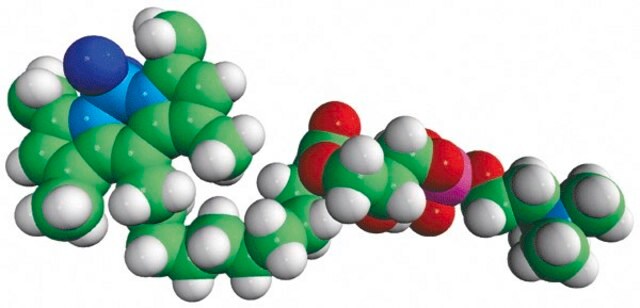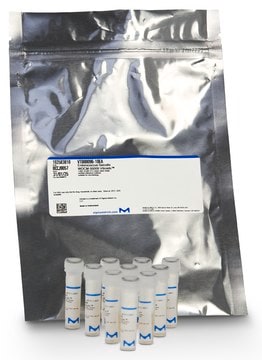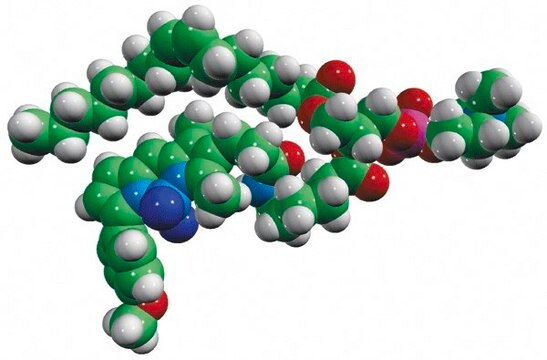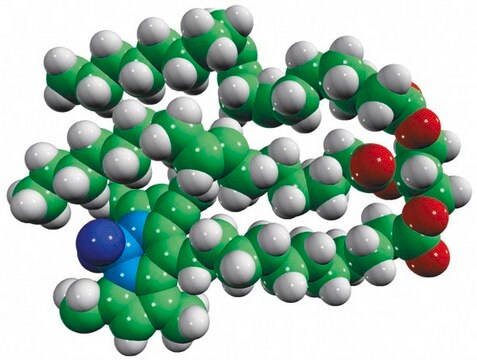810280P
Avanti
TopFluor™ Lyso PA
Avanti Research™ - A Croda Brand 810280P, powder
Synonym(s):
1-{12-[4-(dipyrrometheneboron difluoride)butanoyl]amino}dodecanoyl-2-hydroxy-sn-glycero-3-phosphate (ammonium salt)
About This Item
Recommended Products
Assay
>99% (LPA; may contain up to 10% of the 2-LPA isomer, TLC)
form
powder
packaging
pkg of 1 × 1 mg (810280P-1mg)
manufacturer/tradename
Avanti Research™ - A Croda Brand 810280P
shipped in
dry ice
storage temp.
−20°C
General description
Application
Biochem/physiol Actions
Packaging
Legal Information
Storage Class Code
11 - Combustible Solids
Regulatory Listings
Regulatory Listings are mainly provided for chemical products. Only limited information can be provided here for non-chemical products. No entry means none of the components are listed. It is the user’s obligation to ensure the safe and legal use of the product.
JAN Code
810280P-BULK:
810280P-1MG:
810280P-VAR:
Choose from one of the most recent versions:
Certificates of Analysis (COA)
Sorry, we don't have COAs for this product available online at this time.
If you need assistance, please contact Customer Support.
Already Own This Product?
Find documentation for the products that you have recently purchased in the Document Library.
Our team of scientists has experience in all areas of research including Life Science, Material Science, Chemical Synthesis, Chromatography, Analytical and many others.
Contact Technical Service





